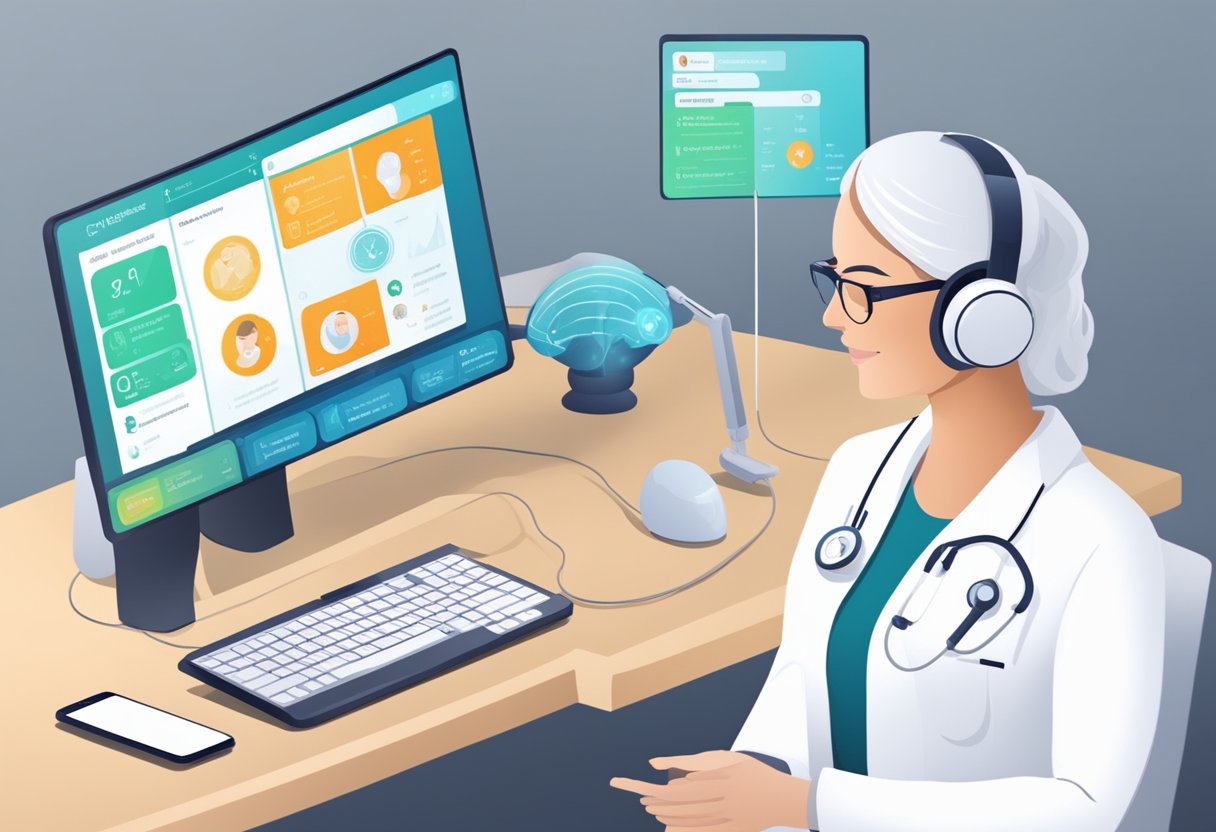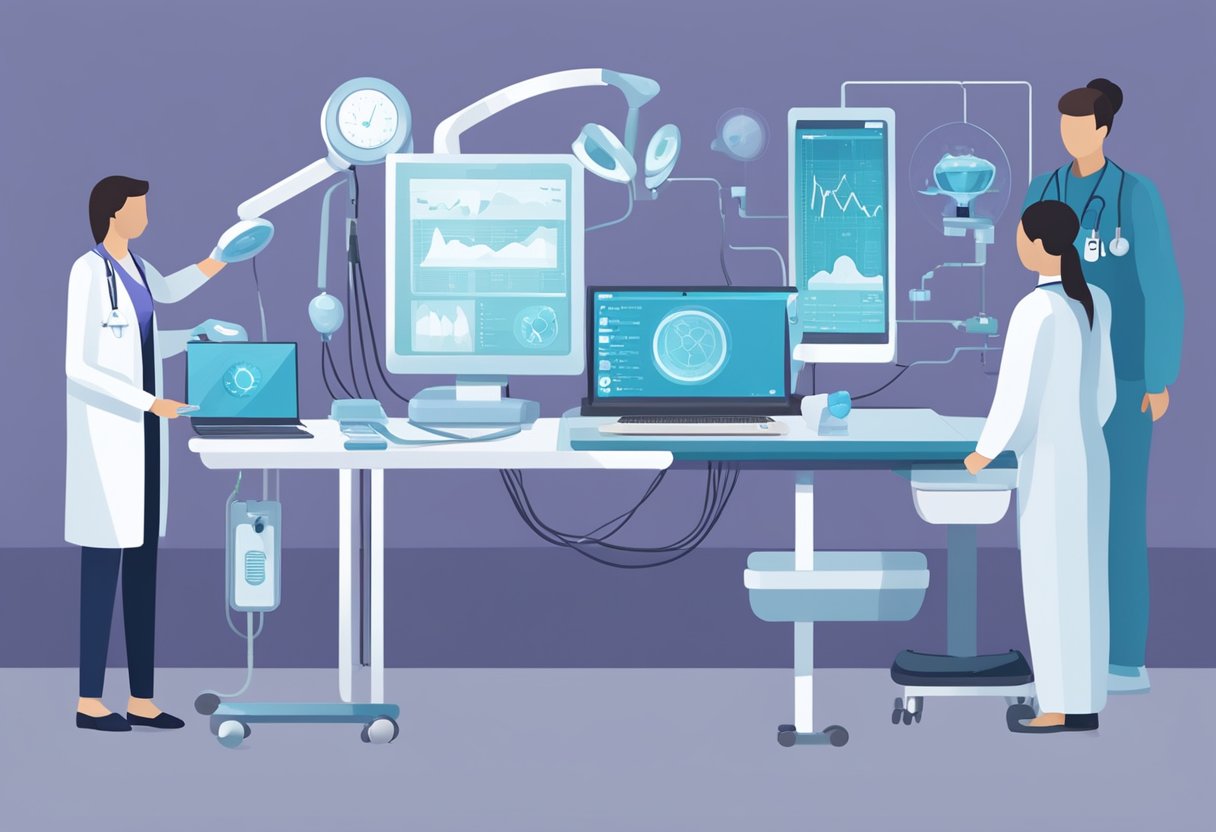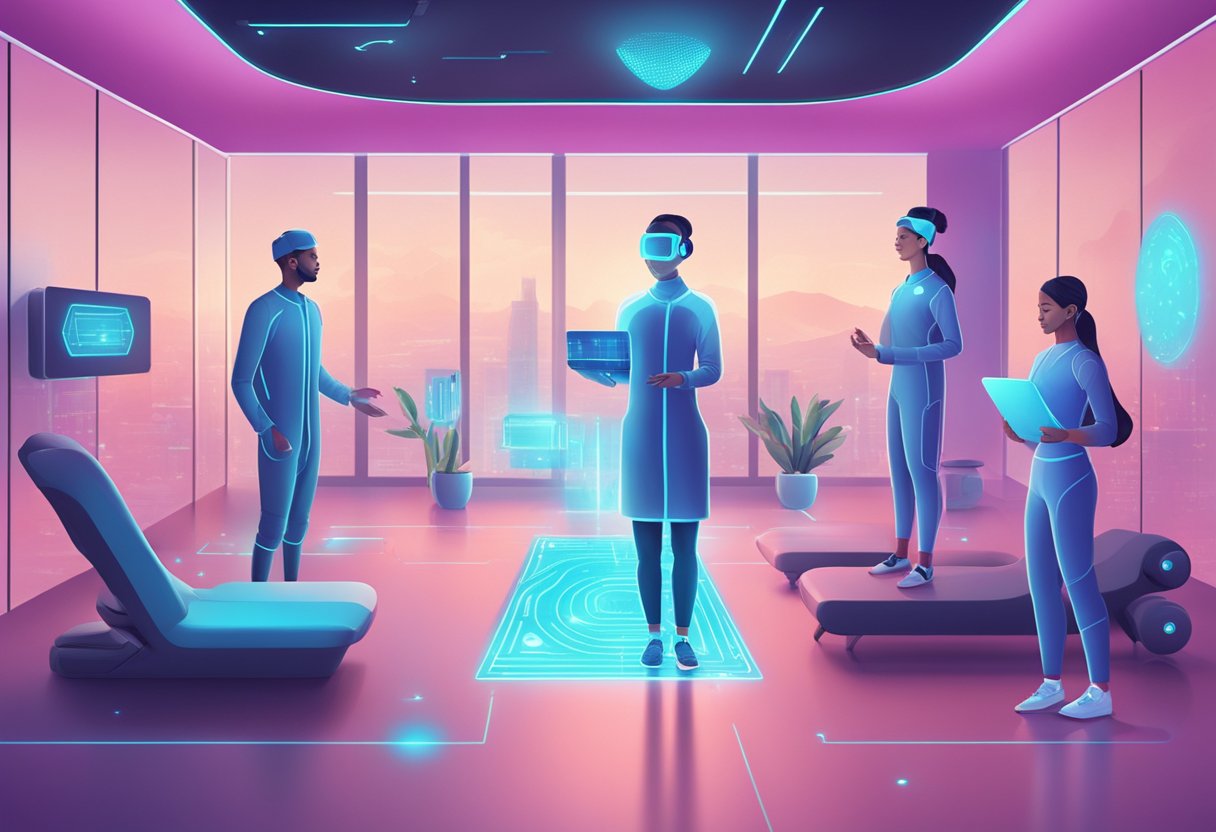Artificial Intelligence (AI) is transforming healthcare, offering new opportunities for improving patient well-being and operational efficiency. AI-powered virtual health assistants represent one of the most user-visible innovations, providing support and guidance for a range of health-related queries and tasks. As healthcare demands continue to rise globally, these virtual assistants help bridge the gap between medical professionals and patients, delivering personalized care at scale. By leveraging vast amounts of data and machine learning algorithms, they are able to provide recommendations, track health progress, and even detect potential health issues.
Behind the scenes, the integration of AI in healthcare goes beyond virtual assistance. It encompasses diagnostic tools, predictive analytics, and personalized medicine. This technological evolution brings with it ethical considerations, as the potential for AI to impact decision making in health contexts raises questions about privacy, data security, and the nature of patient-AI interaction. The future of AI-driven health and wellness promises significant advancements, but it also necessitates a careful balance between innovation and responsible deployment.
Key Takeaways
- AI enables personalized healthcare through data-driven insights and predictive analysis.
- Virtual health assistants facilitate access to health information and support.
- The growth of AI in healthcare introduces ethical considerations and requires a balance of innovation with care.
The Role of AI in Healthcare
Artificial intelligence is reshaping patient care, streamlining healthcare system operations, and expanding access through remote monitoring and telemedicine. It’s exciting to see how this tech is becoming a game-changer in the industry.
Advancements in Patient Care
AI technologies wield the power to personalize patient care. Intelligent software can now analyze medical data, leading to customized treatment plans that adapt to individuals’ needs. For example, AI in the healthcare market enables the creation of intelligent robots and virtual assistants, which support both patients and providers by offering new methods of interaction and observation.
Healthcare Systems Efficiency
In the healthcare industry, efficiency is key. AI helps hospitals and clinics reduce operational costs and improve patient engagement. For instance, it integrates insights from various health records to optimize resource allocation. Research suggests that AI has the potential to revolutionize not only patient care but also the inner workings of healthcare operations by automating administrative tasks.
Remote Monitoring and Telemedicine
Telehealth has surged, particularly in times of health crises, as a viable alternative to in-person appointments. AI enhances telemedicine through the use of voice assistants and remote monitoring tools. These innovations aid in managing chronic conditions from the comfort of one’s home and ensure continual patient care when in-person visits are not possible. Telehealth solutions are constantly evolving, promising improved population-level health and wellness.
Virtual Health Assistants: Operations and Impact
Virtual Health Assistants (VHAs) are reshaping the way healthcare systems interact with patients, from the mundane to the complex. They assist in streamlining processes and providing tailored information, significantly altering operational efficiency and patient engagement.
Appointment Scheduling and Reminders
Virtual health assistants excel at automating the scheduling of appointments, taking over a task often marked by cumbersome back-and-forths. They provide a convenient interface for patients to book, change, or cancel appointments. By integrating with a clinic’s calendar systems, VHAs can also send out timely reminders to reduce no-shows, ensuring both the medical staff and the patients can make the most of their time.
- Book appointments: Patients simply state their availability, and the VHA handles the rest.
- Send reminders: Push notifications or messages remind patients of their upcoming appointments.
Personalized Health Information Delivery
Utilizing advanced AI, VHAs offer personalized healthcare information to patients. They respond to inquiries with relevant health information tailored to individual needs. Through natural language processing, VHAs can understand and engage in two-way conversations, making them more than just an information repository but a form of personalized support.
- Health tips: Based on the user’s health records, VHAs provide customized advice.
- Answer questions: Patients get instant responses to health-related questions.
Managing Patient Data
One of the most critical functions of VHAs is managing patient data. They help in organizing and updating health records, ensuring that all information is current and accessible. This capability supports clinical decision-making by providing healthcare professionals with up-to-date patient information at their fingertips.
- Update records: Patients can relay new health information which is then logged automatically.
- Retrieve data: Healthcare providers access complete, updated patient records promptly, aiding in personalized care.
By handling administrative tasks like appointment scheduling, sending reminders, and managing records, VHAs are indispensable tools in modern healthcare, providing both operational support and personalized health information delivery.
Technological Evolution and Ethical Considerations
The advent of AI in healthcare is reshaping patient care and wellness, yet it raises significant ethical considerations. Innovations in AI algorithms and natural language processing (NLP) pave the way for nuanced virtual assistant interactions, but they also instigate discussions on data privacy and the integrity of AI-driven decision making.
Natural Language Processing and AI Algorithms
Natural language processing has reached impressive heights, enabling virtual health assistants to interpret and respond to human language with increasing accuracy. What patients now experience as seamless conversations are the result of complex AI algorithms processing immense amounts of linguistic data. This innovation allows for more personalized and efficient care, but it needs careful ethical scrutiny to avoid misuse or erroneous interpretations that could affect patient outcomes.
Data Privacy and Security in Virtual Assistants
Virtual health assistants collect a swath of sensitive health data, making data privacy and security a top priority. HIPAA compliance is non-negotiable, and developers must implement stringent security measures to protect health information. Patients and providers must have confidence that their data are handled with the utmost integrity and care, safeguarding against breaches that could have far-reaching implications.
Ethics of AI-driven Healthcare
Ethical considerations in AI-driven healthcare encompass more than just privacy; they extend to fairness in medical recommendations and the prevention of biases in AI algorithms. Healthcare providers must ensure that these intelligent systems are designed with ethical guidelines that promote equal treatment and uphold the patient’s best interests. As virtual health assistants become more integrated into care, ongoing ethical evaluations are crucial to maintain trust and efficacy in AI-enhanced healthcare interactions.
Future Prospects in AI-driven Health and Wellness
Artificial Intelligence (AI) is set to transform the landscape of health and wellness, with advancements promising personalized patient care and improved outcomes. The integration of predictive analytics, the management of chronic diseases, and the widening scope of medical research are just the tip of the iceberg when it comes to AI’s potential influence.
Predictive Analytics in Patient Outcomes
They’re gearing up AI to perform predictive analytics that could dramatically shift patient outcomes. These systems are adept at sifting through mountains of data, spotting trends and patterns that human analysts might overlook. For example, AI can predict complications or readmissions before they occur, allowing healthcare providers to intervene proactively. Tailored treatment plans become more accurate, paving the way for interventions that are strong on prevention and light on reactive care.
AI in Chronic Disease Management and Prevention
Chronic disease management is another area ripe for an AI revolution. They’ve started rolling out AI systems that track patient data in real-time, offering a level of personalized monitoring previously unavailable. For patients with conditions like diabetes or heart disease, these systems can recommend lifestyle adjustments, medication tweaks, and give a heads-up when metrics fall outside healthy ranges—often key to preventing escalation of the disease.
Expansion of AI in Medical Research
Finally, AI’s role in medical research is expanding at a brisk pace. Generative Artificial Intelligence is breaking new ground, designing new drugs and therapies rapidly and more safely than traditional methods. They’re witnessing AI’s ability to expedite early detection of diseases by identifying biomarkers that would take ages to find manually. Researchers harness AI to not only innovate treatments but also to understand diseases on a more profound level, hopefully leading to a future with less disease and more well-being.



